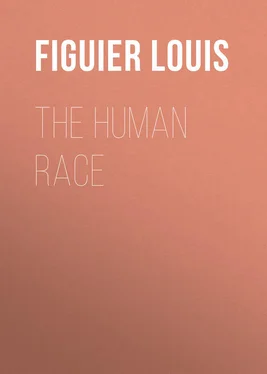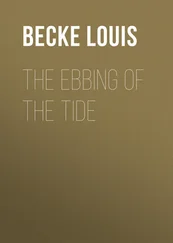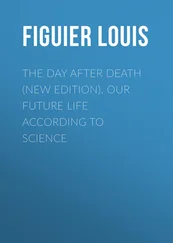Louis Figuier - The Human Race
Здесь есть возможность читать онлайн «Louis Figuier - The Human Race» — ознакомительный отрывок электронной книги совершенно бесплатно, а после прочтения отрывка купить полную версию. В некоторых случаях можно слушать аудио, скачать через торрент в формате fb2 и присутствует краткое содержание. Жанр: История, foreign_antique, foreign_prose, на английском языке. Описание произведения, (предисловие) а так же отзывы посетителей доступны на портале библиотеки ЛибКат.
- Название:The Human Race
- Автор:
- Жанр:
- Год:неизвестен
- ISBN:нет данных
- Рейтинг книги:3 / 5. Голосов: 1
-
Избранное:Добавить в избранное
- Отзывы:
-
Ваша оценка:
- 60
- 1
- 2
- 3
- 4
- 5
The Human Race: краткое содержание, описание и аннотация
Предлагаем к чтению аннотацию, описание, краткое содержание или предисловие (зависит от того, что написал сам автор книги «The Human Race»). Если вы не нашли необходимую информацию о книге — напишите в комментариях, мы постараемся отыскать её.
The Human Race — читать онлайн ознакомительный отрывок
Ниже представлен текст книги, разбитый по страницам. Система сохранения места последней прочитанной страницы, позволяет с удобством читать онлайн бесплатно книгу «The Human Race», без необходимости каждый раз заново искать на чём Вы остановились. Поставьте закладку, и сможете в любой момент перейти на страницу, на которой закончили чтение.
Интервал:
Закладка:
Louis Figuier
The Human Race
INTRODUCTION
CHAPTER I
Definition of Man – How he differs from other Animals – Origin of Man – In what parts of the Earth did he first appear? – Unity of Mankind, evidence in support – What is understood by species in Natural History – Man forms but one species, with its varieties or kinds – Classification of the Human Race.
What is man? A profound thinker, Cardinal de Bonald, has said: “Man is an intelligence assisted by organs.” We would fain adopt this definition, which brings into relief the true attribute of man, intelligence, were it not defective in drawing no sufficient distinction between man and the brute. It is a fact that animals are intelligent and that their intelligence is assisted by organs. But their intelligence is infinitely inferior to that of man. It does not extend beyond the necessities of attack and defence, the power of seeking food, and a small number of affections or passions, whose very limited scope merely extends to material wants. With man, on the other hand, intelligence is of a high order, although its range is limited, and it is often arrested, powerless and mute, before the problems itself proposes. In bodily formation, man is an animal, he lives in a material envelope, of which the structure is that of the Mammalia; but he far surpasses the animal in the extent of his intellectual faculties. The definition of man must therefore establish this relation which animals bear to ourselves, and indicate, if possible, the degree which separates them. For this reason we shall define man: an organized, intelligent being, endowed with the faculty of abstraction .
To give beyond this a perfectly satisfactory definition of man is impossible: first, because, a definition, being but the expression of a theory, which rarely commands universal assent, is liable to be rejected with the theory itself; and secondly, because a perfectly accurate definition supposes an absolute knowledge of the subject, of which absolute knowledge our understanding is incapable. It has been well said that a correct definition can be furnished by none but divine power. Nothing is more true than this, and were we able to give of our own species a definition rigorously correct, we should indeed possess absolute knowledge.
The trouble we have to define aright the being about to form the subject of our investigation is but a forecast of the difficulties we shall meet when we endeavour to reason upon and to classify man. He who ventures to fathom the problems of human nature, physical, intellectual or moral, is arrested at every step. Each moment he must confess his powerlessness to solve the questions which arise, and at times is forced to content himself with merely suggesting them. This can be explained. Man is the last link of visible creation; with him closes the series of living beings which we are permitted to contemplate. Beyond him there extends, in a world hidden from our view, a train of beings of a new order, endowed with faculties superior and inaccessible to our comprehension, mysterious phalanxes, whose place of abode even is unknown to us, and who, after us, form the next step in the infinite progression of living creatures by whom the universe is peopled. Situate, as he is, on the confines of this unknown world, on the very threshold of this domain, which his eye, if not his thoughts may not penetrate, man shares to some extent the attributes belonging to those beings who follow him in the economy of nature. Doubtless, it is this which makes it so difficult for us to comprehend the actual essence of man, his destiny, his origin and his end.
These reflections have been called for in order to supply an explanation of the frequent admissions of helplessness which we shall be obliged to make in this cursory Introduction, when we investigate the origin of man, the period of his first appearance on the globe, the unity or division of our species, the classification of the human race, &c. If to many of these questions we reply with doubt and uncertainty, the reader must not lay the blame at the feet of science, but must search for the cause in the impenetrable laws of nature.
And first, whence comes man? Wherefore does he exist? To this we can make no reply, the problem is beyond the reach of human thought. But we may at least enquire, since this question has been largely debated by the learned, whether man was at once constituted such as he is, or whether he originally existed in some other animal form, which has been modified in its anatomical structure by time and circumstances. In other words, is it true, as has been pretended by various of our contemporaries, that man is the result of the organic improvement of a particular race of apes, which race forms a link between the apes with which we are familiar and the first man?
We have already treated and discussed this question more fully in the volume which preceded this. We have shown, in “Primitive Man,” that man is not derived, by a process of organic transformation, from any animal, and that he includes the ape not more than the whale among his ancestry; but that he is the product of a special creation.
Nevertheless, whether its creation be special or the result of modification, the human species has not always existed. There is, then, a first cause for its production. What is this? Here is again a problem which surpasses our understanding. Let us say, my readers, that the creation of the human species was an act of God, that man is one of the children of the great arbiter of the universe, and we shall have given to this question the only response which can content at once our feelings and our reason.
But let us summon questions more accessible to our comprehension, with which the mind is more at ease, and upon which science can exercise its functions. To what period should we refer the first appearance of man upon the globe? In “Primitive Man” we have answered this question as far as it can be. We have considered the opinion of some writers who carry the first appearance of man as far back as the tertiary period. Rejecting this date on account of the insufficiency of the evidence produced, we, in common with most naturalists, have admitted, that man appeared for the first time upon our globe at the commencement of the quaternary period, that is to say, before the geological phenomenon of the deluge and previous to the glacial period which preceded this great terrestrial cataclysm. To fix the birth of man in the tertiary period would be to travel out of facts now within the ken of science, and to substitute for observation, conjecture and hypothesis.
By saying that man appeared for the first time upon the globe at the commencement of the quaternary period, we establish the fact, which is agreeable to the cosmogony of Moses, that man was formed after the other animals, and that by his advent he crowned the edifice of animal creation.
At the quaternary period almost all the animals of our time had already seen the light, and a certain number of animal species existed, which were shortly to disappear. When man was created, the mammoth, the great bear, the cave tiger, and the cervus megaceros, animals more bulky, more robust and more agile than the corresponding species of our time, filled the forests and peopled the plains. The first men were therefore contemporary with the woolly elephant, the cave bear and tiger; they had to contend with these savage phalanxes, as formidable in their number as their strength. Nevertheless, in obedience to the laws of nature, these animals were to disappear from the globe and give place to smaller or different species, whilst man, persisting in the opposite direction, increased and multiplied, as the Scripture has said, and gradually spread into all inhabitable countries, taking possession of his empire which daily increased with the progress of his intelligence.
Читать дальшеИнтервал:
Закладка:
Похожие книги на «The Human Race»
Представляем Вашему вниманию похожие книги на «The Human Race» списком для выбора. Мы отобрали схожую по названию и смыслу литературу в надежде предоставить читателям больше вариантов отыскать новые, интересные, ещё непрочитанные произведения.
Обсуждение, отзывы о книге «The Human Race» и просто собственные мнения читателей. Оставьте ваши комментарии, напишите, что Вы думаете о произведении, его смысле или главных героях. Укажите что конкретно понравилось, а что нет, и почему Вы так считаете.











![Anne Blunt - A Pilgrimage to Nejd, the Cradle of the Arab Race. Vol. 1 [of 2]](/books/749489/anne-blunt-a-pilgrimage-to-nejd-the-cradle-of-the-thumb.webp)
